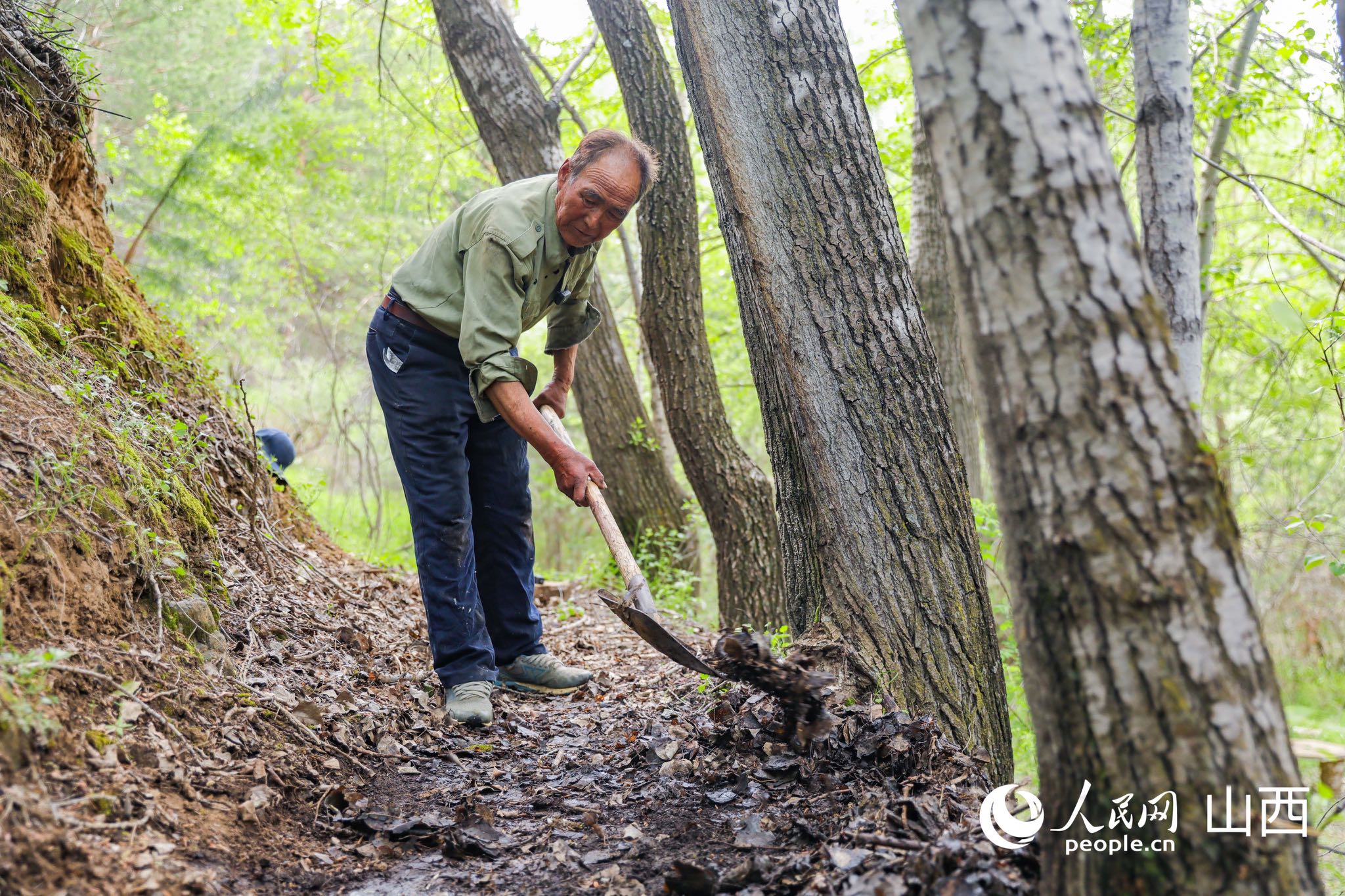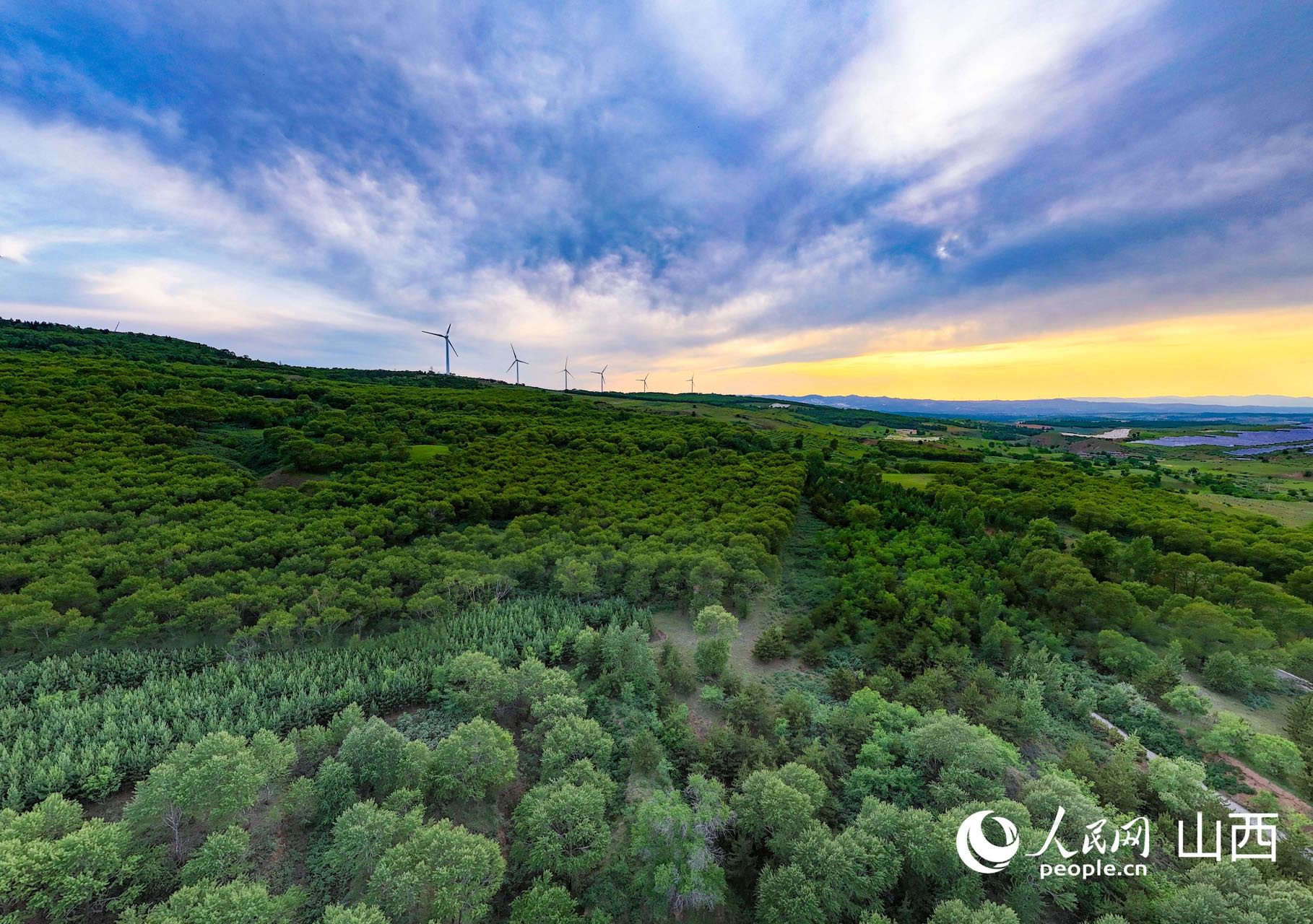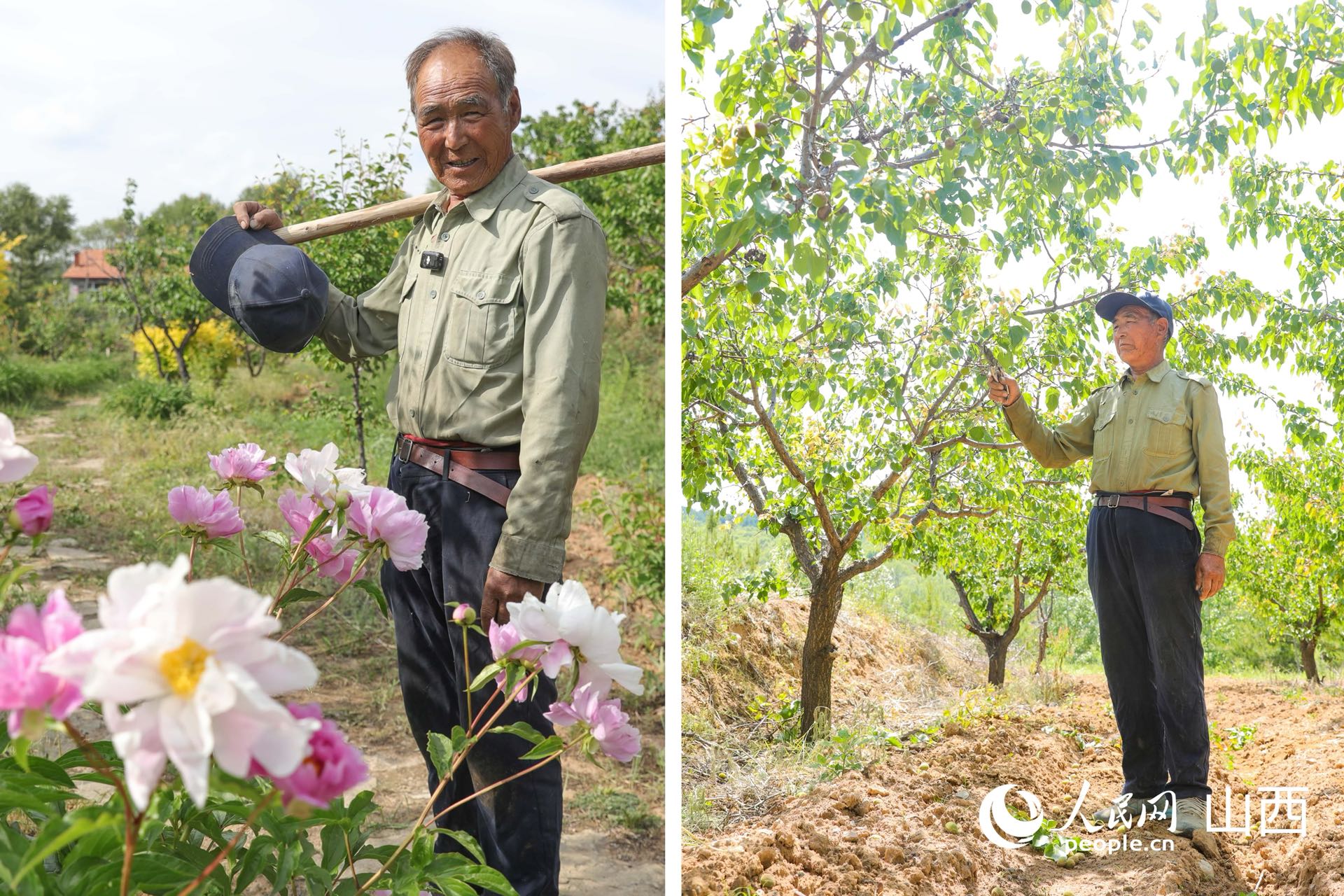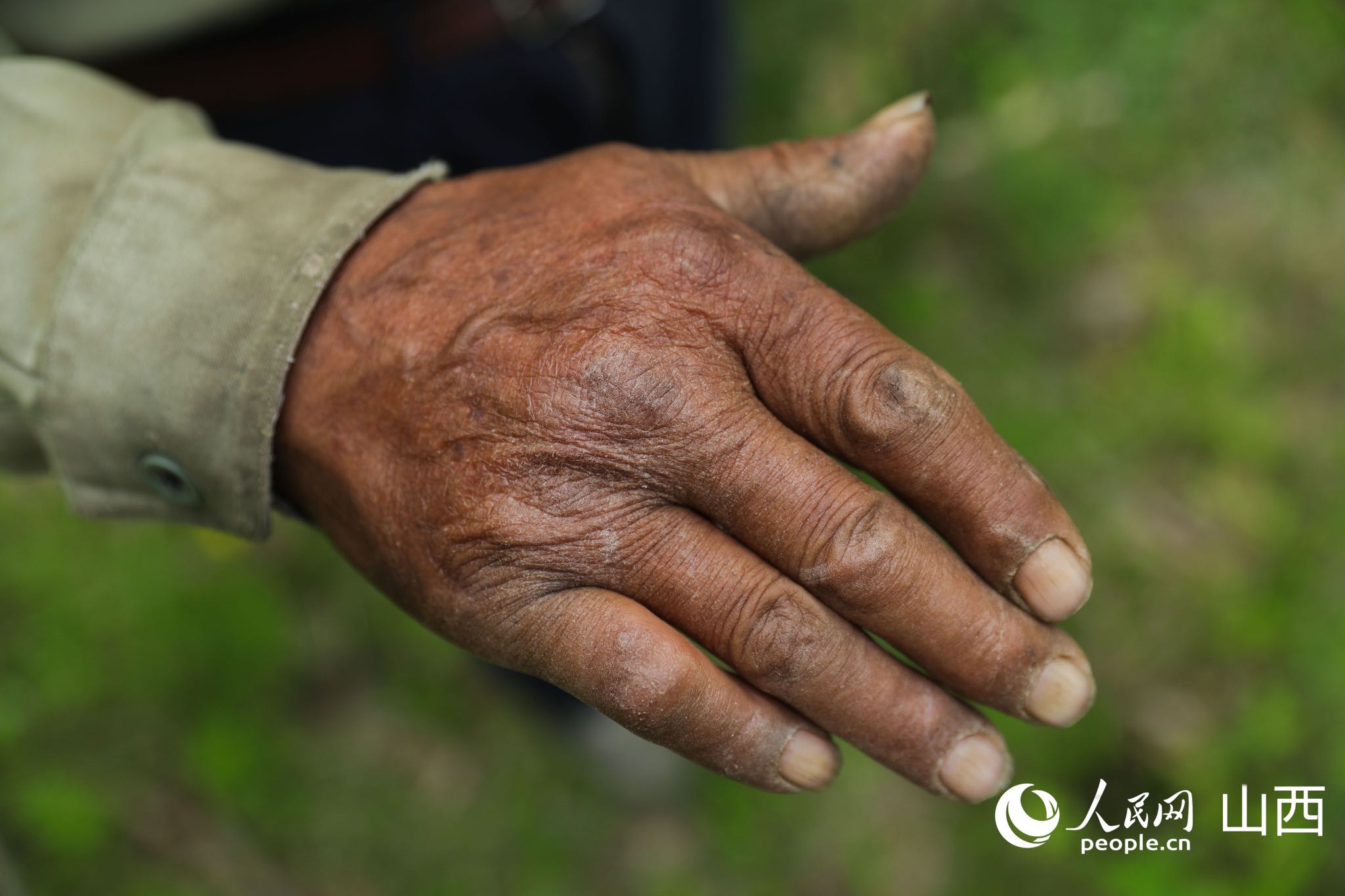




- BRNN
- BRI News
- BRNN News
- Database
Official Documents Polices and Regulations
Inter-government Documents International Cooperation BRI Countries
Business Guide Economic Data BRI Data
Trade
Investment Projects Latest projects
Cases - Content Pool
In midsummer, green vegetation covers Shipao valley in Youyu county, Shuozhou city, north China's Shanxi Province. For those familiar with the county's afforestation history, no trees grew and no grass survived here in the past.
74-year-old Wang Zhanfeng has devoted his life to fighting desertification and planting trees. Youyu, located in the wind corridor of the Mu Us Desert, had a fragile environment before the founding of the People's Republic of China. It was battered by sandstorms, facing desert encroachment that forced people to retreat and even threatened to relocate the entire county.

Wang Zhanfeng clears fallen leaves on a dam in a forest in Youyu county, Shuozhou city, north China's Shanxi Province. (People's Daily Online/Wang Fan)
Over the past 70-plus years, the local government has led the people to plant trees, bringing forest coverage rate from less than 0.3 percent to 57 percent.
In 1983, the county issued 10 rules for undertaking the management of small watersheds. That year, 3,900 farming households took responsibility for managing 1,987 small watersheds under contract, covering 335,000 mu (about 22,333 hectares).
In the same year, Wang, then a wealthy man, gave up his comfortable life. Using savings from running a hotel, he returned to Youyu and contracted 1,500 mu of barren land in Shipao valley, becoming the first person in the province to sign a contract to manage a small watershed.

Photo shows the beautiful sunset scenery in Shipao valley, Youyu county, Shuozhou city, north China's Shanxi Province. (People's Daily Online/Wang Fan)
Afforestation proved more difficult than Wang had anticipated. He encountered numerous challenges, including poor-quality seedlings, barren soil, and a lack of understanding from his family. Yet Wang persevered. He constructed infrastructure to conserve water and prevent soil erosion, planted cash crops to generate funds, abandoned crude methods, and mastered advanced irrigation techniques. He relocated three times, built shelters, and worked tirelessly—leaving at 5 a.m. and returning at night.

Photo shows Chinese peonies and apricot trees planted by Wang Zhanfeng in Shipao valley, Youyu county, Shuozhou city, north China's Shanxi Province. (People's Daily Online/Wang Fan)
Wang's efforts paid off. He developed a method for managing small watersheds and, in 1994, was awarded the title "A Model Worker for Small Watershed Management in Shanxi." Wang took root in barren mountains for 43 years, turning over 3,000 mu of land green.

Photo shows Wang Zhanfeng's hand. (People's Daily Online/Wang Fan)
What was once a monoculture poplar forest has transformed into a rich ecosystem, now home to wild pheasants, Siberian roe deer, and other wildlife. Wang said he plans to plant blueberries and sea buckthorn, so the land can generate even more value.

Tel:86-10-65363107, 86-10-65368220, 86-10-65363106